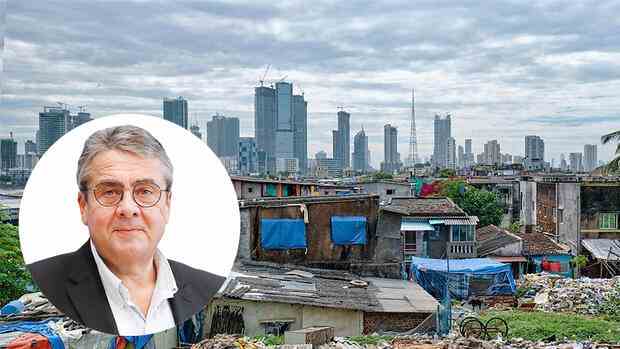Sigmar Gabriel is a publicist and Chairman of the Supervisory Board of Thyssen-Krupp Steel. He was German Vice Chancellor from 2013 to 2018.
(Photo: Imago)
Russia’s war against Ukraine and growing uncertainty about China’s future development are among the greatest geopolitical risks. Russia could develop into a real rogue state that shies away from direct confrontation with NATO, but seeks to destabilize its Western allies with cyber attacks, fake news and attacks on infrastructure. China, on the other hand, has abandoned the principle of collective leadership, and now state and party leader Xi Jinping alone decides. However, too much power in the hands of an individual increases the risk of overestimating one’s own political or military scope for action.
Added to this is the ongoing inability of the international community to work together constructively. Keywords such as the proliferation of nuclear weapons, a paralyzed World Security Council and the inability of the UN climate conferences to pass internationally binding resolutions and provide the poorest countries with enough money to adapt to the consequences of the climate crisis make it clear that the world is increasingly falling apart into individual interests.
It was precisely the willingness to cooperate that has grown with globalization that has enabled the world to achieve an unprecedented increase in prosperity over the past 40 years. More than a billion people escaped extreme poverty and joined the first global middle class in history. Indicators such as falling child mortality, increasing life expectancy, more rights for women and increasing education signaled an almost uninterrupted improvement in living standards around the world.
There is a risk of more child labor again
According to UN estimates, the corona pandemic has set human development back by five years – this applies to more than 90 percent of all countries. The exploding energy and food prices will put an even greater burden on developing countries this year. In his analysis for 2023, the American analyst Ian Bremmer emphasizes that women and girls will be hit the hardest by this development: Stagnating growth, food insecurity and reduced social and health spending are pushing more women out of the labor market and into the informal economy.
This puts them at greater risk of poverty, hunger, domestic violence and sexual exploitation. More girls are again at risk of child and forced marriage, particularly in West and Central Africa. The climate crisis is multiplying these threats as extreme weather events disrupt supply chains and trading patterns, and put additional strain on food and energy markets.
The destruction of livelihoods, in turn, forces people to flee – even the most martial border regimes in Europe or the USA will not be able to stop the refugee movements. Because the motto of the Bremen Town Musicians applies: We find something better than death everywhere.
Global Challenges – idea and regular authors
Most developing country governments have limited fiscal space to defuse humanitarian crises on the ground. It is also to be feared that, in view of the strained public finances, even the rich countries will not increase their budgets for development aid, contrary to what has been promised. Often there is even a threat of a reduction. Already, Africa is concerned that financial aid to Ukraine could come at the expense of helping the world’s poorest in sub-Saharan Africa and South Asia.
The global middle class is shrinking
As a result of this overall development, the global middle class will shrink again, pushing countless people below the subsistence level without any social safety net. Against this background, the greatest geopolitical risks in the medium and long term do not emanate from Russia and also not from China.
Rather, the decisive risk is the growing gap between the Global North and the Global South, the associated collapse of fragile democracies, the return of nationalist radicalization and destabilization through growing refugee movements. In the end, neither the South nor the North will be able to stand it.
Anyone who wants to know what to do in this threatening situation will find a lot in the North-South report “Securing Survival. Common interests of developed and developing countries”. The report was prepared under the chairmanship of Willy Brandt on behalf of the Secretary General of the United Nations – and with its forward-looking strategies and concepts is considered a milestone in development policy.
Instead of talking about deglobalization, the underprivileged countries of the South in particular need further trade liberalization, the dismantling of protectionist measures aimed at them and greater integration into the world economy.
The author:
Sigmar Gabriel is a publicist and Chairman of the Supervisory Board of Thyssen-Krupp Steel. He was German Vice Chancellor from 2013 to 2018.
More: More cooperation instead of less – another guest commentary by Sigmar Gabriel
